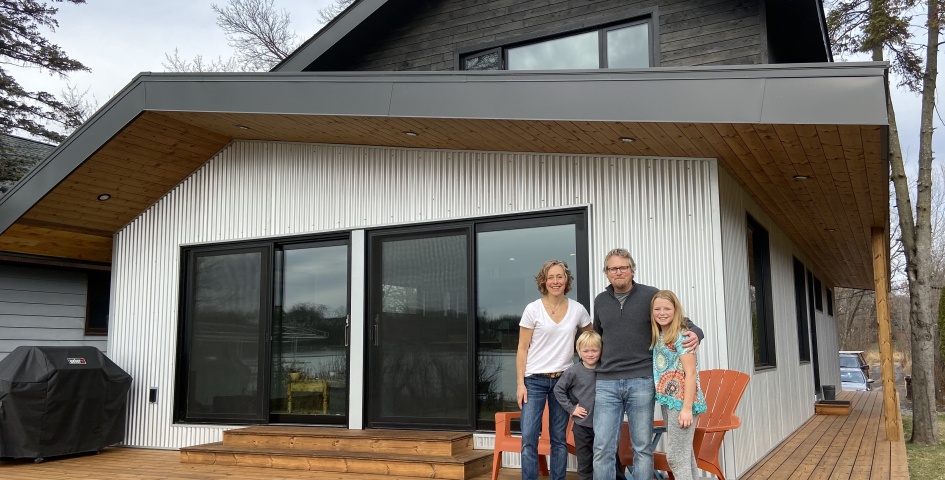Builders and real estate developers prioritise cutting costs and build times without sacrificing quality in the current, fast-paced construction business. Structural Insulated Panels (SIPs) have emerged as a game-changing technology in this respect, providing a solution that addresses these key concerns. SIP panel producers have a major influence on how construction will develop in the future because of their products, which simplify building procedures, increase productivity, and drastically cut prices. This article explores how SIP panel manufacturers are instrumental in revolutionising construction timelines and budgets.
What Are SIP Panels?
SIP panels are composed of two structural facings, usually composed of oriented strand board (OSB), encasing an insulating foam core. This combination produces a building material that is both extremely strong and lightweight. Superior in both energy efficiency and structural integrity as compared to more conventional construction materials like wood framing, SIPs are frequently utilised for walls, roofs, and floors.
There are many benefits to SIP panels, but their ability to reduce construction time and costs makes them a standout choice for modern construction projects.
Reduced Construction Time
Prefabrication Efficiency
One of the primary ways SIP panel manufacturers help reduce construction time is through prefabrication. SIP panels are engineered and manufactured off-site in a controlled factory environment. This prefabrication allows manufacturers to produce metal insulated panels that meet exact specifications, significantly reducing the need for on-site adjustments. Once the SIPs arrive at the construction site, they can be quickly assembled, often within a matter of days, cutting down overall construction time compared to traditional methods.
Traditional stick-built homes may take weeks or even months to frame, but with SIP panels, the entire structure can be erected in a fraction of the time, helping builders meet tight deadlines.
Fewer On-Site Labor Requirements
Because SIP panels are easy to assemble, they require less on-site labour. This reduction in labour needs not only accelerates the building process but also lowers labour costs. SIP panel manufacturers provide detailed blueprints and guidance for assembly, making the construction process smoother and more efficient. Fewer labourers are needed on-site, which translates into quicker completion times and fewer scheduling conflicts.
All-Weather Construction
Another factor contributing to reduced construction time is the ability to build in various weather conditions. Traditional building methods are often delayed by weather, as tasks like framing or roofing may not be feasible during rain or snow. SIP panels, however, are resistant to weather-related delays. Since they are prefabricated and require fewer steps to assemble, construction can proceed even in less-than-ideal conditions, saving time and keeping projects on schedule.
Cost Savings
Lower Labor Costs
With reduced on-site labour requirements, SIP panel manufacturers enable builders to save on labour expenses. In traditional construction, labour costs can quickly escalate due to the complexity of framing, insulation, and finishing processes. However, with controlled environment panels, many of these tasks are completed during the prefabrication stage, minimising the number of workers required on-site. As a result, builders experience significant labour savings throughout the project.
Minimised Waste
SIP panel manufacturers are able to optimise the use of materials during the manufacturing process, which leads to less waste compared to traditional construction. Standard stick-built construction often results in significant material waste due to cutting and shaping wood, insulation, and other building components on-site. SIP panels are produced with precision, reducing material waste and associated disposal costs. This efficiency in resource usage also aligns with sustainability goals, further enhancing the appeal of SIP construction.
Energy Efficiency And Long-Term Savings
While the initial cost of SIP panels might be higher than traditional materials, the long-term savings they offer are substantial. SIP panels provide excellent insulation due to their airtight construction, leading to lower energy consumption for heating and cooling. Homeowners and building operators benefit from reduced utility bills over the lifetime of the building. By choosing SIP panels, developers not only save on construction costs but also deliver long-term value to property owners through energy efficiency.
Reduced Financing Costs
By speeding up the construction timeline, SIP panel manufacturers also help reduce financing costs. Faster construction means shorter loan periods, less interest accumulation, and quicker project turnovers, allowing builders and developers to move on to new projects sooner. This reduction in holding costs directly impacts the overall profitability of the project.
Conclusion
The role of SIP panel manufacturers in the construction industry cannot be overstated. By providing prefabricated, highly efficient building materials, they help reduce construction time and costs in multiple ways. Comparing SIP panels to traditional construction methods, builders can achieve faster and more cost-effective results by minimising labour and material waste and improving energy efficiency. As the demand for sustainable, efficient building continues to grow, SIP panel manufacturers are positioned to play a critical role in shaping the future of construction, making projects more feasible, profitable, and environmentally friendly.




